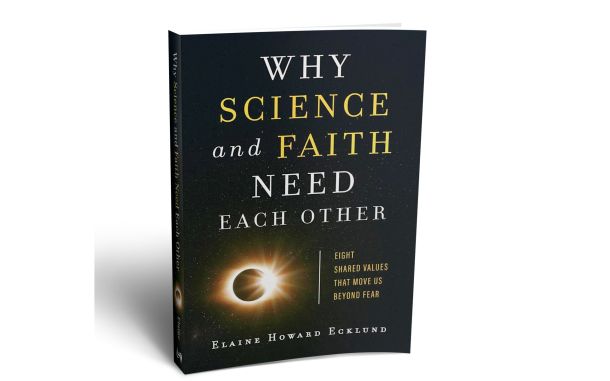Another Way of Journeying and Initiation (2)

In This Article
-
Instead of overflowing with thankfulness for whatever favors it receives, evil-commanding soul inwardly collapses because of self-pride, conceit, and arrogance, and extinguishes its feelings of thankfulness to and praise for God Almighty.
-
Human beings are such precious and well-endowed creatures that they can sometimes fly so high that even the angels desire to catch up with them; sometimes they can reach the peaks which separate the realm of mortal beings from eternity and infinity.
-
The truly and fully human beings cleanse the heart of foul concepts and images, adorn their “secret” with knowledge of God, illuminate their “private” with the torch of love and zeal, and make their “more private” utter loyalty.
The third discipline: A carnal, evil-commanding soul that has not yet been able to step on the way to refinement through journeying in itself and the outer world, ascribes to itself whatever good and achievement it is favored with, while imputing evils and failures to either external factors and causes or its incorrect, stunted concept of Destiny. Instead of overflowing with thankfulness for whatever favors it receives, it inwardly collapses because of self-pride, conceit, and arrogance, and extinguishes its feelings of thankfulness to and praise for God Almighty. It contaminates its horizon with the filth of such bad morals, and ruins itself. Whereas, if the carnal soul is able to attribute to God all the good and achievements and impute all evils, shortcomings and failures to itself, then it would be favored with blessing after blessing, even in the most unfavorable circumstances. What is necessary is that the carnal soul should see that its perfection lies in its perception and acknowledgment of its imperfection, and that it should always be humble before and devoted to God. The carnal soul should also overflow with thankfulness and zeal by perceiving and acknowledging that its power comes from its helplessness, and its richness lies in its innate poverty.
It is extremely important for us as believers to know that all our merits and accomplishments are from God, while all our imperfections and errors are from our own selves, and that we should keep our system of self-interrogation and self-control alive and active. So long as the travelers to God can do this, they will always yield fruit, even in the most unfavorable circumstances. Whereas, from the moment when aridity arises in their spiritual world due to certain erosions, then only thorns will grow in their climate, even in the most favorable circumstances, and they will hoot like an owl lamenting in ruins.
If human beings were only physical beings, their concerns and worries about corporeality would be meaningful. Seeing a noble being as consisting only of a physical body means reducing it to the level of flesh, which is bound to disintegrate and rot away and be food for microorganisms. This is the most abominable form of despising the noblest and most honorable of all creation. But the actual fact of the matter is that humankind, by virtue of their creation, endowment, and potentials, are more valued and sublime than even the angels. Human beings are much more than being mere body; they are endowed with heart, spirit, and other inward spiritual faculties, with consciousness, intellect, perception, intelligence and other outer and inner senses and feelings. Human beings are an assemblage of values that transcends the physical dimension of their being. Human beings are such precious and well-endowed creatures that they can sometimes fly so high that even the angels desire to catch up with them; sometimes they can reach the peaks which separate the realm of mortal beings from eternity and infinity. Using their mental faculties to the utmost degree, they arrange travel to celestial bodies, and transfer sounds, voices and images from great distances, offering us the most beautiful melodies of time and space shrinking at great speed.
However, despite the extent of their capacity and exceptional nature, humans can fall into a net of hatred, grudges, greed, and lust, becoming the most wretched and abased of all beings. They can be wretched slaves and beggars, despite their nature and capacity to be the masterpieces of creation; they can become nothing more than worms creeping on the earth, despite their potential to be heavenly beings. But if they turn completely to God with all their inner dynamism, overflowing with thankfulness for all the good He has bestowed on them, and impute to themselves all the evils they may commit and shortcomings they may suffer, and if they can attain their essential purity by being cleansed under the taps of self-control and supervision a few times every day, they can set up the tent of true humanity on the debris of evil feelings and passions, and express themselves through accomplishments, without ever losing their humility and feelings of nothingness before God Almighty. This also means discovering themselves anew at every attempt, being fully aware of themselves in their own depths, and experiencing a new revival at every moment. Mawlana Jalalu’d-Din Rumi sees this as the feet of the soul being freed from the fetters of corporeality and the spirit starting to become heavenly. A spirit which has become heavenly also attempts to arrange its own, inner world with its whole power of perception and consciousness, makes incessant efforts to repair the defects standing in the way of its perfection. Such a spirit travels sometimes in the realm that stands before the veil over existence and sometimes beyond it, and goes into ecstasies at every seeing of the depths of its heart. Every such seeing arouses in it a new desire to grow into perfection, and every desire a new zeal for self-renewal. It sees its heart as a home of God and utters:
The heart is the home of God;
purify it of whatever is there other than Him,
so that the All-Merciful may descend into His palace at nights.
The truly and fully human beings cleanse the heart of foul concepts and images, adorn their “secret” with knowledge of God, illuminate their “private” with the torch of love and zeal, and make their “more private” utter loyalty. They are always occupied with the All-Beloved, and ready to sacrifice themselves for His sake. This is their affliction, which is preferred to all cures; they are exhausted with the excitement of being on the way to Him. However, their affliction is sweeter than all cures, and their exhaustion is preferable to every rest or repose. Their affliction causes them to travel through deserts in quest of greater afflictions, saying:
I used to seek a cure for my inward affliction;
they said: “Your cure is the affliction itself.”
I used to seek something to sacrifice in the court of the Beloved;
they said: “Your soul is the thing you seek to sacrifice.”
(M. Lutfi)
The soul also utters, as many have uttered:
I used to seek a cure for my affliction;
I have come to know that my affliction itself is my cure.
I used to try to find that which is hidden in my origin;
I have come to know that my origin is that which is hidden.
(Niyazi Misri)
Many have sung melodies of love about Him, and of separation from Him and yearning to meet with Him with all of their being, as if each part of their bodies were a flute. Concerning this, Mawlana Rumi says:
O heart! You and your suffering for Him exist; ah, how nice it is always to be concerned with Him and suffering for Him! That suffering is, in fact, your cure. So, bear with all the afflictions and troubles coming from Him, without making the least complaint. So does He decree. If you have been able to trample your bodily desires, then you have killed the dog of your carnal soul, which is the thing that should be killed.
The fourth discipline: The carnal soul sees itself as if it were a being which exists independently. It sometimes adopts a manner so refractory and abased that every attitude and act it performs is disobedience and hostility to Him Whom it must unquestionably worship. In reality none other than Him has an independent existence of itself. Every existing being or thing, living or non-living, functions as a mirror to the Names of the All-Exalted Creator with respect to the level of life with which it is favored. Even though the human carnal soul has an exceptional nature and capacity particular to itself among other beings, its existence with whatever it has is from Him, and subsists by Him alone. For this reason, with respect to itself, it is a zero in the face of Eternity, a shadow in the face of the Original Being, and is nothing in the face of the Truly Existent One. Its perception of this is the first step to the attainment of true existence, while thinking otherwise is a lethal stumbling. When one sees oneself as an independent being existing and subsisting by oneself, one rolls headlong into the dark abyss of non-existence. Yet, when one functions as a polished mirror to the Ultimate Truth (having whatever is good and valuable as only a reflection from Him), one is en route to eternity. One smashes the tight frame around one and finds the light of the Existence of the True Being. Concerning this, Muhammad Iqbal says:
In your essence, there is a substance from the Existence of God, and a ray from His manifestation. But for His ocean, I do not know where we would have been able to find this “pearl.”
The following couplet, whose author is not known, relates the matter to the famous saying, “He who knows himself, knows his Lord”:
Know your own self, if you desire to have knowledge of God;
only he who knows his own self, is one who has knowledge of God.
Mawlana Rumi sums up the matter as follows:
So long as a servant is annihilated with respect to his ego and conceit,
it is impossible for him to attain true belief in God and His Unity.
Unity does not mean union with God; it means freedom from ego.
Whoever says otherwise, speaks a lie and cannot make falsehood truth.
To sum up, it is possible to say that, other than the way composed of love, suffering and similar essentials by which one can reach God, there is another way; this is the way of one’s perception and the acknowledgment of one’s own helplessness and poverty before God, and of affection and reflection. This second way is safer and more direct than the former one.
Travelers following such a way in consciousness of their helplessness turn to the One of Infinite Power with all of their being, each saying: “Hold me by the hand, hold because I cannot manage without You.” The more aware they are of their poverty, the more sincerely they take refuge with the Divine Wealth, and attribute to Him whatever in their possession is good and praiseworthy. They are in constant thankfulness and act zealously where others stumble because of their self-pride and utterances that are incompatible with the rules of Shari‘a. Those who study deeply and reflect on their inner world and the outer world do not fall into pride (by ascribing any accomplishment and the favors they have received to themselves,) nor do they fall into mental and spiritual confusions by imputing evils to external causes or Destiny. On the contrary, they attribute to God all of their accomplishments and the favors they receive, rely on Him, and enjoy the pleasure of dependence on Him. As for evils, they ascribe them to themselves and turn to God with repentance, penitence and contrition, feeling pangs of separation from Him and pleasures in the expectation of again meeting with Him. Since they regard their existence as a shadow of the light of the Divine Existence, they never consider that they have independent self-existence, nor do they need to be preoccupied with such notions as Unity of Being and Unity of the Witnessed. With the conviction that their existence, with all its attributes and potentials and whatever endowment they have been granted, are all from Him, then they live with the pleasure or the hope of His company, and act in thankfulness for being on the way to Him. They never value or esteem easy behavior or utterances that suggest self-pride and self-complacency.
The basic essentials of this way were once expressed by the present author as follows:
O friends, come and listen, O friends!
Our way is the way of zeal;
The comrades satisfied with belief,
thorns are roses for us.
Thanks to Him, we have seen the Face of the Ultimate Truth,
and found the very essence of everything.
We have adopted His every word as a principle;
and His Speech is evidence for us.
All strength by which we are strong is His;
we are known for His Name, by Which we act,
and travel, going beyond the summits;
all difficulties are easy for us to surmount.
We have no wealth but are extremely wealthy;
and are noble and honored by relation to Him.
Reflection is our way; and everything, wet or dry,
is a source of knowledge of God for us.
Plains, residences, and deserts,
all voices mention Him throughout the universe;
roses of all colors that have opened,
each is a message to us from Him.
You know us from serving God with utmost zeal;
our work is always thinking of Him.
And what we will always do and declare:
His Book is the guide for us.
We have found Him and submitted to Him;
and been saved from grief and despair.
We were sullied but have been cleaned;
His Mercy is the ocean in which we were cleaned.
O Lord! Accept my repentance, and clean me of the dirt, answer my prayers, secure my place in religion, guide my heart, make my voice always speak the truth, and root out all kinds of hatred and envy from my heart. And bestow Your blessings and peace on our master and support Muhammad, and on his Family and Companions, all of them.









